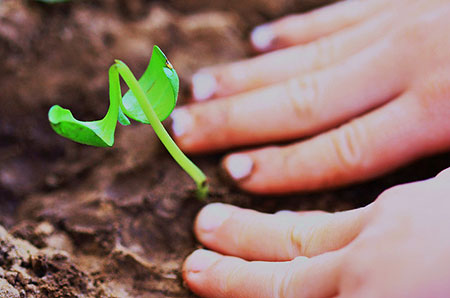|
from OccupyMonsanto Website recovered through WayBackMachine Website also in here, here, here, here and more...
Keeping our children from harm in today’s chemically-saturated world is one of the great challenges of modern parenting.
The more I read the news, the more I want to look for toddler-sized quarantine suits on Etsy, but the most proactive way I can protect my daughter is to keep myself educated on these issues - even if that means I get forehead wrinkles from excessive worry.
In addition to the health of my child, I fear for the ecological health of the planet.
Last time I checked, Earth is the only place we have to live, and what kind of future am I providing for my daughter if I am not cognizant of how my life, and the decisions of my government, effect our environment?
That is why every parent should be aware of the Monsanto Protection Act and what it means for their family.
When President Obama signed the Monsanto Protection Act, many citizens were outraged by this blatant violation of the Constitution. By approving this act, Obama has allowed Monsanto to exist above the law, since genetically modified seeds are now protected from any litigation involving health risks.
That is strange, right? If you were confident in your product, why would you be concerned about lawsuits involving health risks?
You may wonder how this applies to you, considering you don’t buy Monsanto-Oh’s for breakfast, but essentially, you are. Monsanto’s genetically engineered corn, soy, wheat and beet crops have infiltrated our entire food system, and you could be eating their products every day and not even realizing it.
Many people, including children, have developed deadly allergies to peanuts and other food products. Imagine the trauma for a child who has to deal with their mortality every time they eat - how terrifying for the affected kids and their parents.
According to PBS.org,
Although I am fan of sushi, I don’t really think it is necessary to cross-breed it with my strawberries - especially considering the potential adverse reaction.
PBS then goes on to explain,
Beyond frightening and unforeseen potential consequences to human health, there are some serious ecological effects we can’t afford to ignore.
Traditionally, farmers around the world have saved seeds in order to cultivate a variety of strands to help maintain bio-diversity, particularly heirloom varieties, some of which may have been developed hundreds of years ago or more. Monsanto requires farmers to sign contracts on their seed that cannot legally be used the next season, and therefore the farmers have to purchase new seed annually.
These GMO seeds are used only in monocrop farming type operations, which are not environmentally friendly or sustainable for their own reasons even without the GMOs, pesticides, and petrochemical fertilizer.
So when you drive cross-country, one-third of the time you will be staring at corn and soy fields making you wish the Children of the Corn will emerge and eat your eyeballs directly out of your sockets.
Massive fields with one crop, created from one seed, become very susceptible to pests - hence the creation of pesticides. And because there is no crop-rotation to replenish fields, the pesticides often continue to build up over time.
I know organic is a bit more expensive, but that is largely because organic farmers don’t receive the subsidies that GM farmers do.
It is not like organic farmers are blinged out in diamonds because of all their profit from kale. They are barely scraping by trying to compete in a marketplace dominated by agribusiness. And think of it this way - until the 1940s the whole world ate organic all the time. Because that was all there was.
Of course this is a very complicated issue because millions of people are dependent on GM crops to survive, but as an individual with purchasing power, how you spend your money will dictate where the market will start to lean. Supporting local farmers and getting involved with CSA‘s (community supported agriculture) will keep your costs down.
And, of course, the more people who buy food grown without GMOs, the more companies will move in that direction.
It can be difficult to make an assessment for yourself of the personal and environmental risks of genetically engineered crops, because both the pro and con sides of the argument are very impassioned.
You can find massive amounts of research pointing you in either direction, and that in and of itself should be a major warning sign.
That the long-term consequences of these products are not yet understood means that we, the consumers, are essentially the test subjects of a global experiment involving our entire food system.
What kind of responsible scientist uses humans as their guinea pigs? Not to throw the mice and rats under the bus, but I would much prefer we test on them for a few decades instead of using our children.
|


